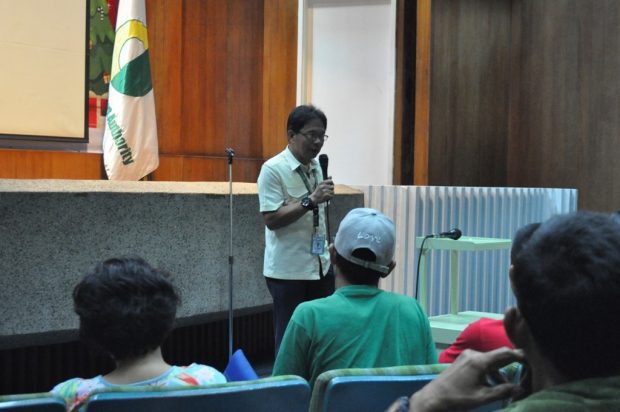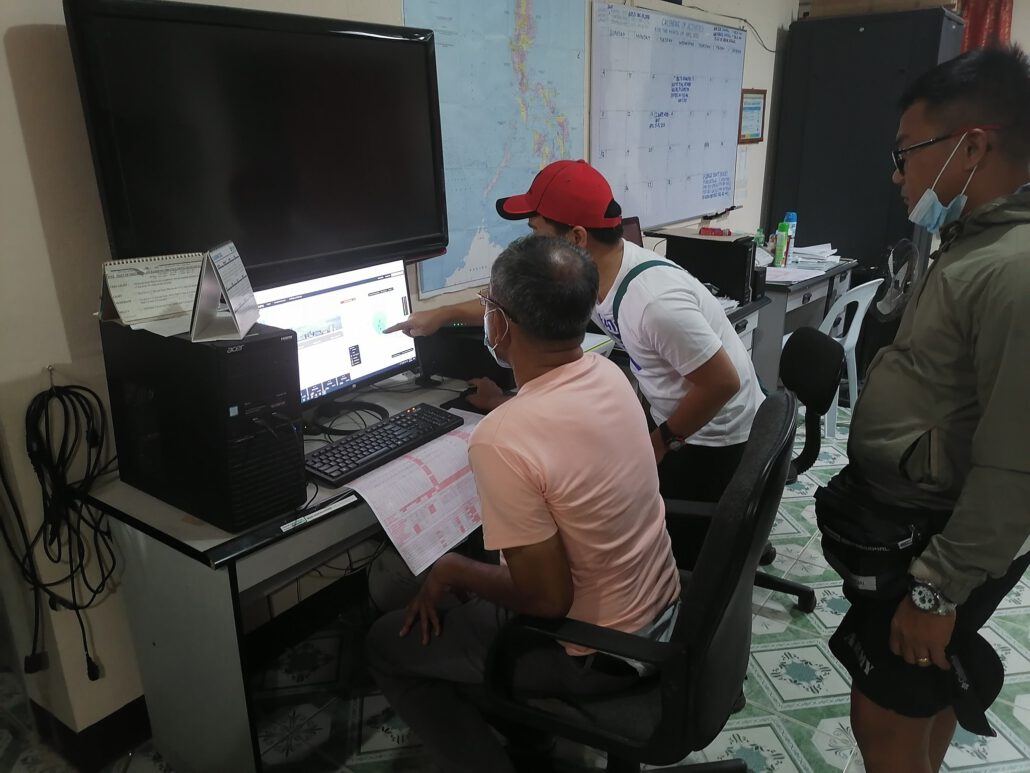By RUTH LUMIBAO
Bulatlat.com
MANILA — The Philippines is an agricultural country but, ironically, farmers complain of government neglect.
Though Eastern Visayas is often hit by typhoons and natural calamities, aid hardly reaches the poorest of the poor: the farmers from far-flung areas. But aside from natural calamities, another disaster plagues the farmers of Eastern Visayas: the plague of pests.
Read: Stand with Samar | On ‘ricelessness’, hunger, and poverty
According to Maricris, a coconut farmer from Las Navas, Northern Samar, pests like cocolisap have gravely affected the amount of copra produced — even reaching the point that they could no longer harvest anything because the worms have already destroyed both fruits and trees.
Jun Berino, spokesperson of SAGUPA-SB, also narrated how palay farmers have to face pests from the start of planting the seedlings up to the point of harvest. If they have enough funds, then they also have to rent water pumps. Otherwise, they would have to rely on rain for irrigation.
In the caravan of Eastern Visayas farmers for rights and justice, they were given the opportunity to face two agencies that have the mandate to assist farmers: the Philippine Coconut Authority (PCA) and the Department of Agriculture (DA).
Small farmers at a disadvantage
“Maraming problema na hindi natutugunan. May tulong naman na binabahagi ang PCA sa region na hindi naman nakakaabot sa mga magsasaka sa niyugan, lalo na sa mga mahihirap, (Many problems are not being met. The PCA gives assistance to the region but this does not reach the small coconut farmers, especially the poor ones.)” Berino said in an interview.
After farmers relayed problems they encounter back home, PCA Officer-In-Charge Department Manager of the Operations Department Pablo Romero explained their projects. According to Romero, PCA’s Yolanda Rehabilitation and Recovery Program (YRRP) has the following components: coconut planting/replanting, coconut intercropping, coconut fertilization debris management and integrated Rhino-beetle control, and integrated pest management.
Romero also explained that the PCA did not allocate funds for the rehabilitation of coconut plantations after post-Yolanda typhoons because no budget was released.
Later in the dialogue, the farmers discovered that one of the major factors that make it hard for them to receive aid is the requirement of a tax declaration to be presented before any assistance or rehabilitation fund is given to them.
Romero said they take ownership of the land into account to ensure ‘continuity’ of the project.
“Karamihan ng mga magsasaka sa niyugan sa Visayas ay walang sariling lupa. Ang proseso nila ay dapat may titulo o may binabayaran na tax para masama sa mga programa ng PCA. Ngayon, minungkahi namin sa PCA kung ano ang pwede nilang gawin para sa mga magsasaka na walang sariling lupa,” (Most coconut farmers in the Visayas do not have their own land. The process of the PCA necessitates a title or a tax declaration for you to be included in their program. Now, we would like to suggest to the PCA that they should also do something about the farmers who do not have their own land.) Berino commented.
Berino also explained that it is hard for them to register their lands because up until now, the classification of their area remains to be ‘forest or timberland’, meaning that it cannot be up for private ownership. Ironically, the actual use of the land is agricultural because years of cultivation have proven that it is fertile.

Romero, representative of PCA, shares about the projects of the agency. (Photo by Ruth Lumibao/ Bulatlat)
The dialogue with PCA is a telling tale of the state of agrarian reform in the country: not only of how those who till the land remain poor and landless, but also of how the politics of aid in rehabilitation tend to benefit those who are landed.
Legitimate demands and hollow promises
“Positibo na napaabot natin ang problema ng mga magsasaka sa niyog. Ang tanong lang ay kailan sila pupunta para tignan ang mga peste at matulungan ang mga magsasaka, (It is positive that we were able to communicate the problems of the coconut farmers. The question is: When will they go to our village to inspect the pests and help the farmers?)“ the peasant leader added.
In response to the farmers’ suggestion that the PCA find ways to address their problems while taking into account the reality that there is no genuine agrarian reform in the country, Romero remarked that he would have to consult his superiors.
In a dialogue with the Department of Agriculture (DA), the department agreed to coordinate with the Department of National Defense (DND) to raise the farmers’ concern about intense militarization in their home province, which likewise affects their livelihood.
It could be recalled that the farmers were earlier violently dispersed by elements of the Quezon City Police District (QCPD) after building make-shift tents in front of the DA office.
Related story: Stand With Samar | QCPD demolishes campout of Visayan farmers (Link: http://bulatlat.com/main/2018/02/27/stand-samar-qcpd-demolishes-campout-visayan-farmers/)
“This is a result of the three-day camp-out. Had it not been for our determination to travel all the way from Eastern Visayas to Metro Manila, the agency will probably not even care about our situation – the alarming pest infestation and the famine looming all over the region”, Berino said in a statement.
In both dialogues, many questions were left unanswered and many concerns were left hanging. What cannot be ignored, however, is the reality that the farmers’ plight is always anchored on one unanswered call: genuine agrarian reform.
For as long as the government and its agencies do not address the problem of landlessness, they would never find a permanent, long-term, and fitting solution to the plight of the farmers. #





